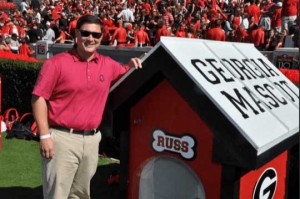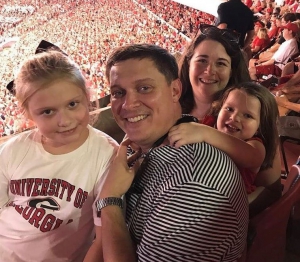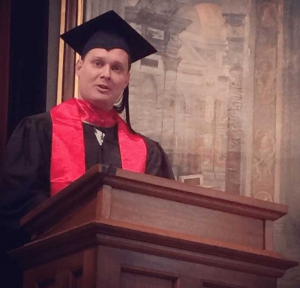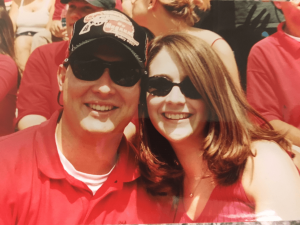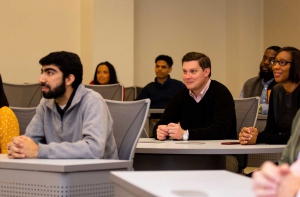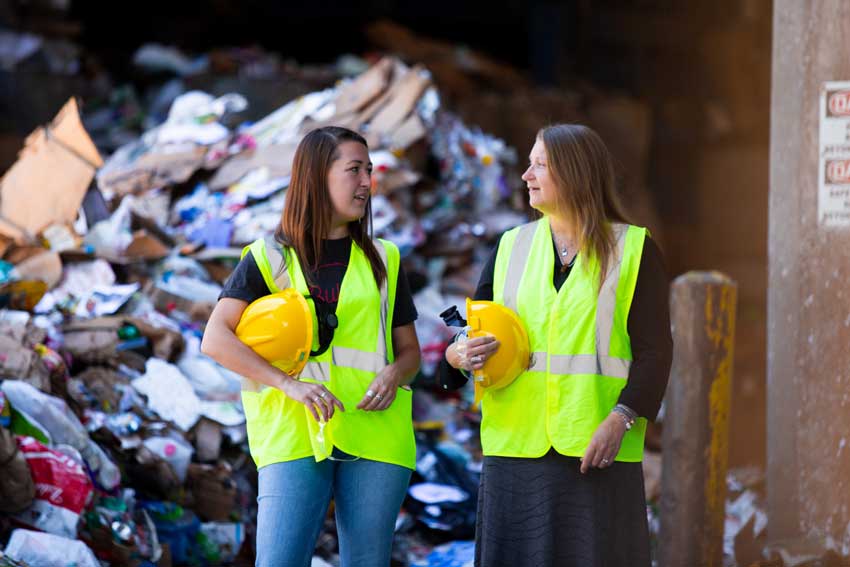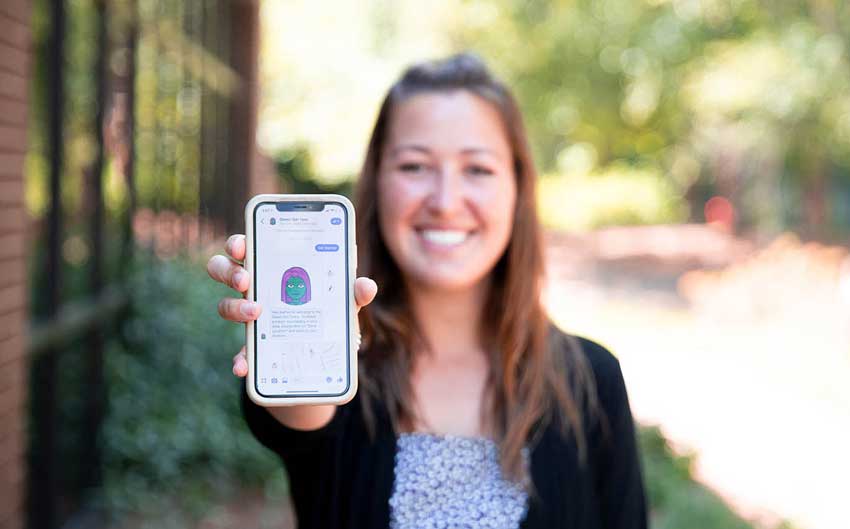Checking in with Alumni Board Member Truitt Eavenson
The following Q&A originally ran in the UGA College of Engineering e-newsletter. Thanks to the college for allowing us to share Truitt’s spotlight!
Truitt Eavenson (BSAE ’83) recently retired after a long and successful career with Georgia Power Company. He also recently established the Truitt Eavenson Engineering Scholarship, is a UGA Alumni Association board member, and is a member of the Engineering Advisory Board.
What led you to UGA as an undergrad?
“Growing up 30 miles outside of Athens, I knew that UGA would be where I would go to school. Saturday afternoons listening to Larry Munson on the radio was always a fall tradition. I remember sitting down with the course catalog and reading through the programs, and that’s when I found Agricultural Engineering. I made an appointment with Dr. Robert Brown, and after that visit I knew what my major would be.”
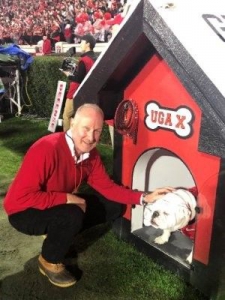
Truitt Eavenson with Uga on the sidelines of a football game.
What are your favorite memories of your time at UGA?
“I transferred to UGA in the fall of 1980. Any Dawg fan will say that there was probably not a more exciting time to be in Athens. The football team was headed to the national championship, work was being done to close in the stadium, and Ag Engineering was selling pieces of the track to fans that had sat there and watched a game. The Ag Engineering program was small enough that we really got to know our fellow students and the professors. And I have to put in a plug for Dr. Sid Thompson. He started what would be a long, memorable career and touched many of our lives as students.”
What inspired you to give back to the College of Engineering?
“This may sound like a simple reason, but I was at work one day talking with a colleague that had also graduated from UGA. We were talking about making contributions to the school where you graduated. They made the statement that they really didn’t understand why people wouldn’t support the school where they received their degree, since the school helped you get a job, reach your career goals, and simply gave us the means to provide for our families. That statement really resonated with me, and I started making small contributions to the engineering program.”
What led to your decision to support scholarships in the College of Engineering?
“I think it just grew from making small gifts. I’ve enjoyed a successful career with Georgia Power, and I wanted to do this as a way to pay it back. An early president of Georgia Power used a line in a speech around 1928. He said that we would be a “citizen wherever we serve.” That was a big part of my career with volunteer activities and the jobs that I was asked to do in communities around that state. My fellow employees at Georgia Power have always set the bar really high when it comes to giving back. When you spend 36 years of your career where that is encouraged and supported, it just becomes second nature, and you find yourself looking for opportunities where you can serve.”
What are your hopes for the future recipients of your scholarships?
“My hope is that 40 years from now they will be asked these questions and will be able to say that the study they completed at UGA allowed them to accomplish all their life goals, and that it helped them provide for their families and make a significant contribution in whatever they attempted to do.”
What has been the most rewarding part of supporting a scholarship in Engineering?
“Just knowing that you are doing a small part in helping the next generation prepare for the future. There’s a proverb that says “society grows when men plant trees they will never sit under.” I feel certain these trees will grow and prosper in ways we haven’t even imagined yet!”

